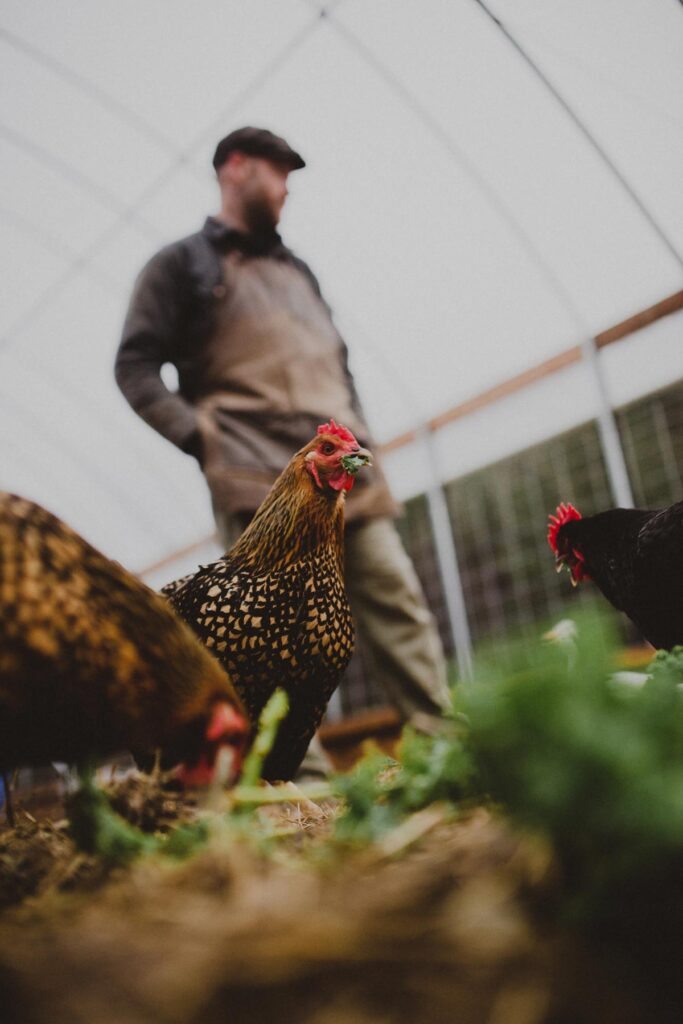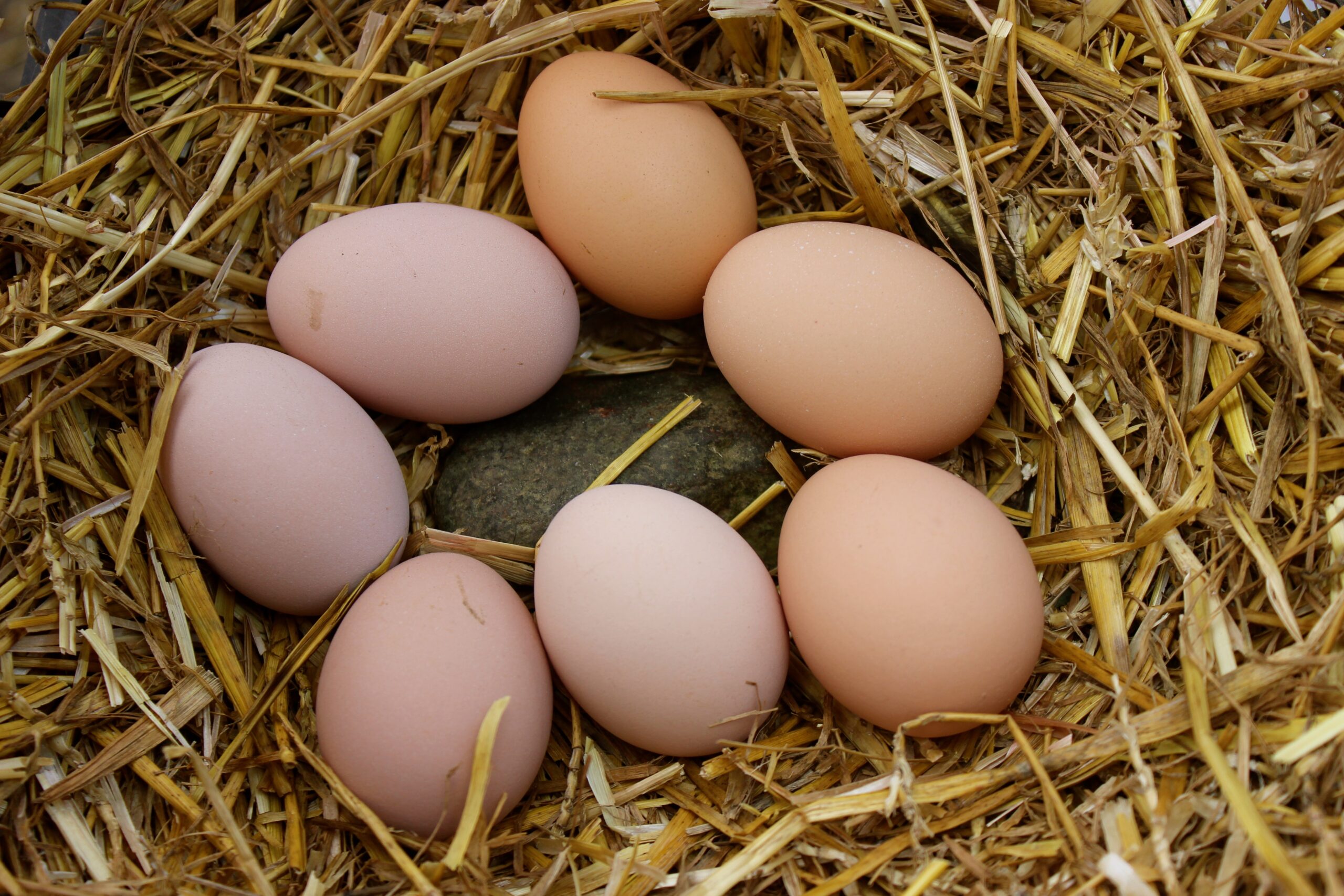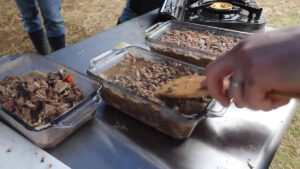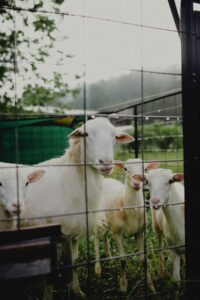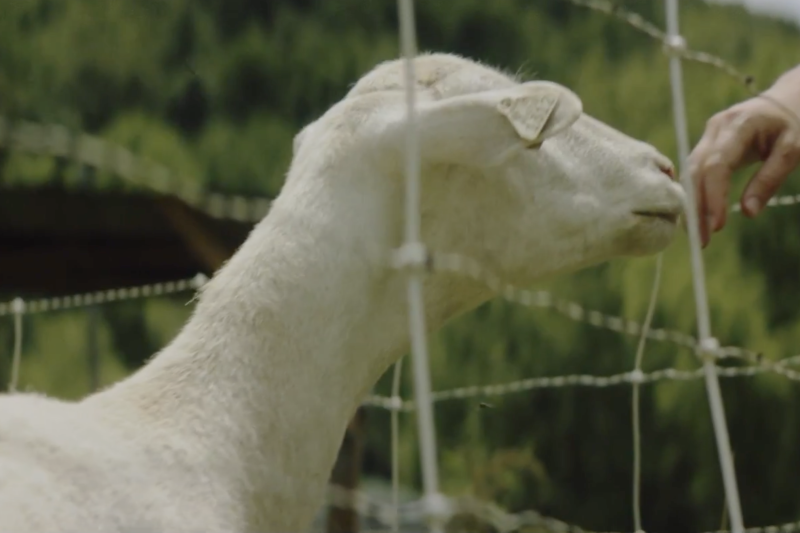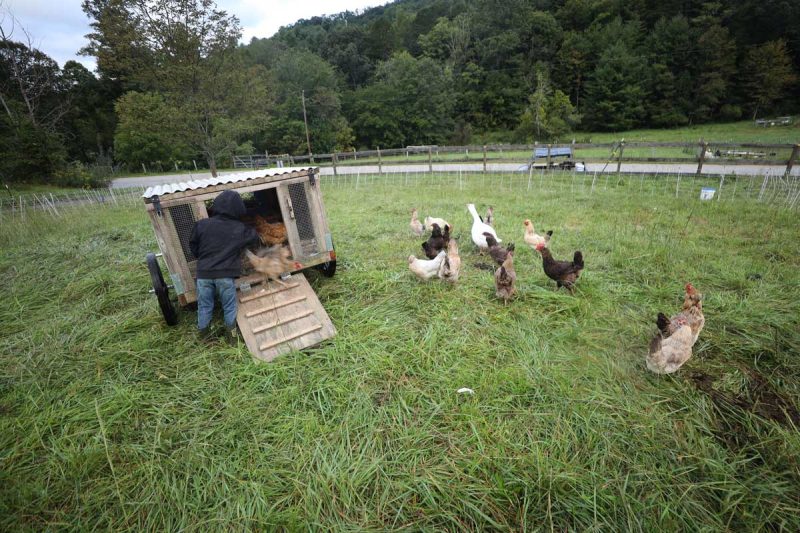The cause could be more than your chickens being just too young. This guide gives you 20 things you can check.
Our Egg Laying Chickens
We love raising backyard chickens. Using chickens with the permaculture approach increases their value. Just a couple of ways we put them to work are using chickens to till and fertilize garden spaces and using chickens as pest control in orchards.
A healthy hen will produce an egg at least every other day, so if our hens stop laying eggs, it’s good to identify why. We want the eggs, but we also want our hens to be healthy and happy.
You never know when something will come up that causes hens to stop laying, so we collect eggs whenever our hens are producing and do our best to preserve them when we have an abundance. This preparation gives us extra eggs to eat if production decreases for a short time.
I put together a list I learned from Lisa Steele at Fresh Eggs Daily to help me identify why chickens stop laying eggs.
Why Chickens Stop Laying Eggs
Egg-laying chickens are relatively easy to raise, but what do you do when your hens stop laying eggs? Here are 20 common reasons your hens may stop laying eggs and solutions to bring back production.
Shorter Days
One reason why chickens stop laying eggs is if the days are getting shorter. Come late fall and winter, a hen’s egg production will slow down because there are not enough hours of daylight to stimulate her ovaries.
Using an artificial light source on a timer will help solve this issue, but I recommend giving your hens at most 14 hours of light. It’s important to remember that the winter months are a good time for our hens (and the entire farm) to slow down and rest; it’s nature’s natural way of taking a break.
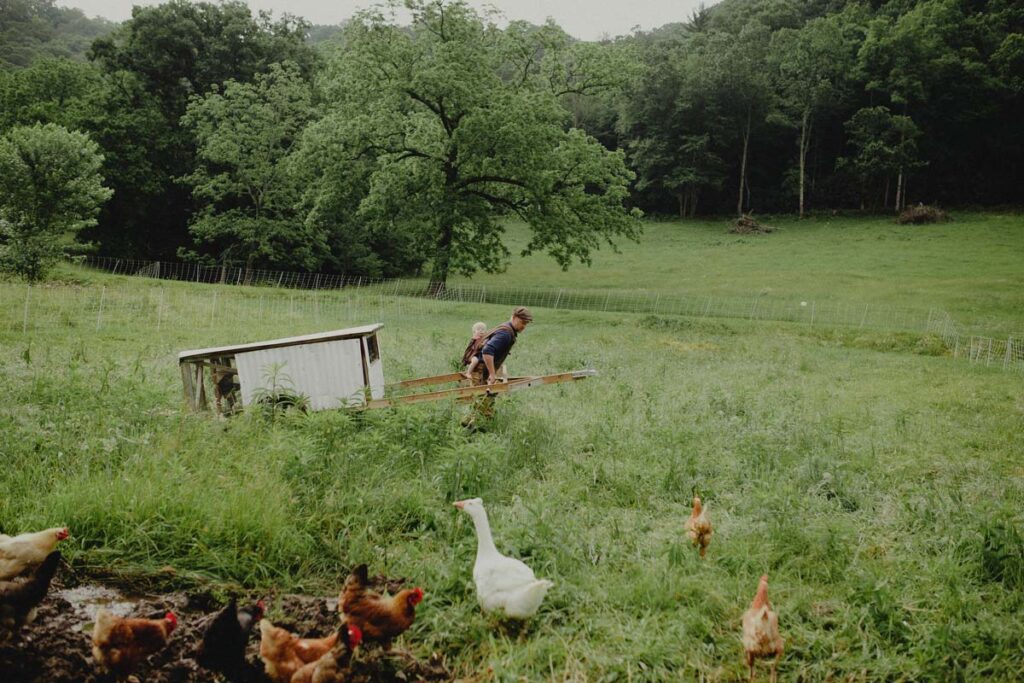
Molting
Another cause for decreased egg production is that they are molting. Molting is the process a bird goes through when it sheds old feathers to make room for new feathers, which usually happens in the fall.
Hens will stop laying eggs when molting because their energy will be making feathers instead of eggs. Adding extra protein into their diet is one way to speed up the process of molting. Sunflower seeds and meat scraps are good sources of protein to feed a molting hen.
You can check out this post to learn more about the nutritional needs of chickens, and in this post, I share my best tips on what to feed chickens other than grain.
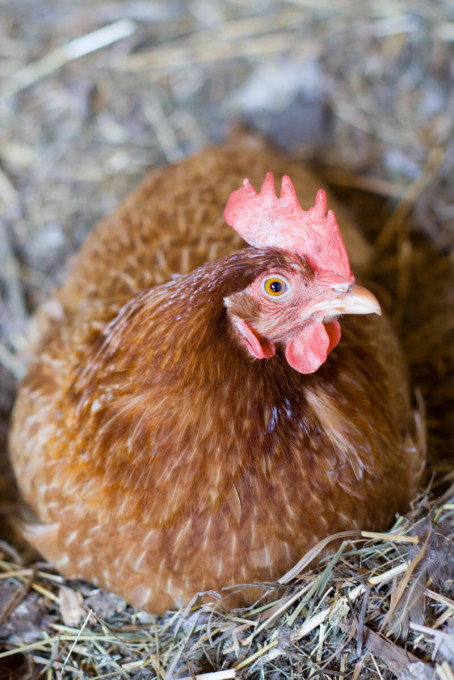
Brooding
Brooding can cause your backyard chicken to stop laying eggs. Brooding is when a hen wants to sit on her eggs in an attempt to hatch them. Brooding can last 3 to 5 weeks; if your hen is sitting on unfertilized eggs, it will not continue laying or producing eggs.
One way to break the brooding phase is to regularly gather the eggs from her nesting area and block off the nest boxes.
If this doesn’t work, you may have to move her to a crate with no nesting material, but make sure she has food and fresh water. Keep her there for a couple of days; it should break the brooding instinct.
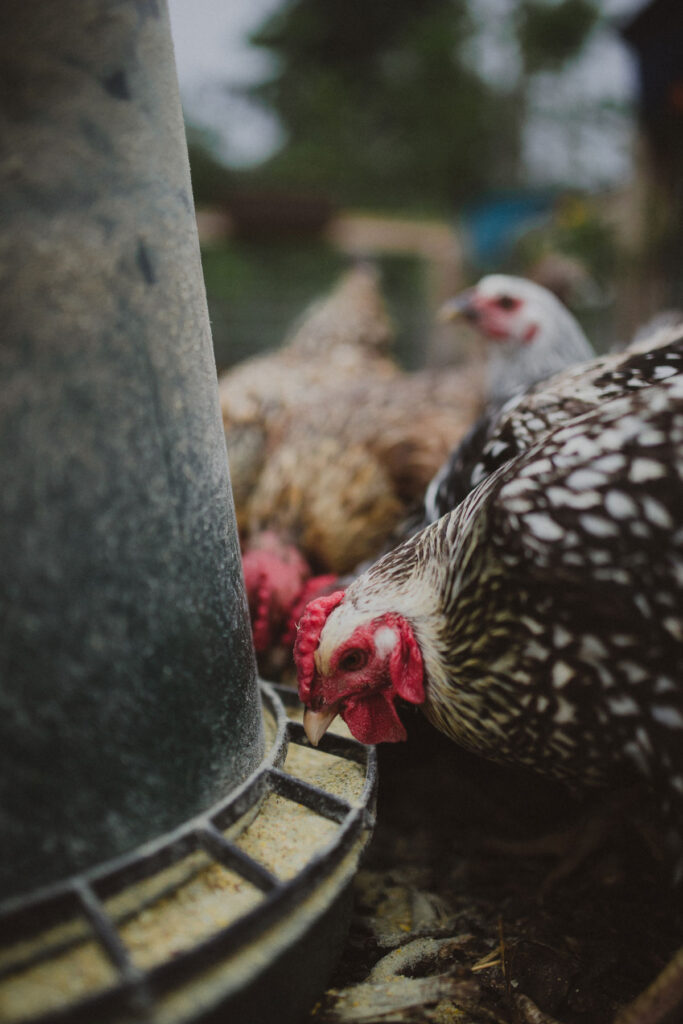
Egg Eating/Boredom
Hens sometimes eat their eggs when they are calcium deficient or out of complete boredom. You don’t want them eating your breakfast.
You may see signs that your hen is eating eggs if there is yolk spilled in places, but often there won’t be any signs that they are eating their eggs.
A great way to prevent this is to make sure your chickens have a healthy diet and calcium supplements. A simple way to provide extra calcium in your hen’s diet is to crush eggshells into their feed. Other great calcium supplements include oyster shells and aragonite.
Another way to prevent egg eating is to keep the nesting boxes above eye level, put soft bedding in her nesting box, and collect the eggs several times a day until they break their bad habit.
They also may be eating their eggs because they are bored. When your hens become bored, they start attacking and eating their eggs, allowing you to collect less usable eggs.
A way to prevent boredom is to give them space to move around in a coop. Use a chick shaw to move your chicken coop around the farm so they are not bored of the location. This also allows your hens to scratch and eat in a clean area.
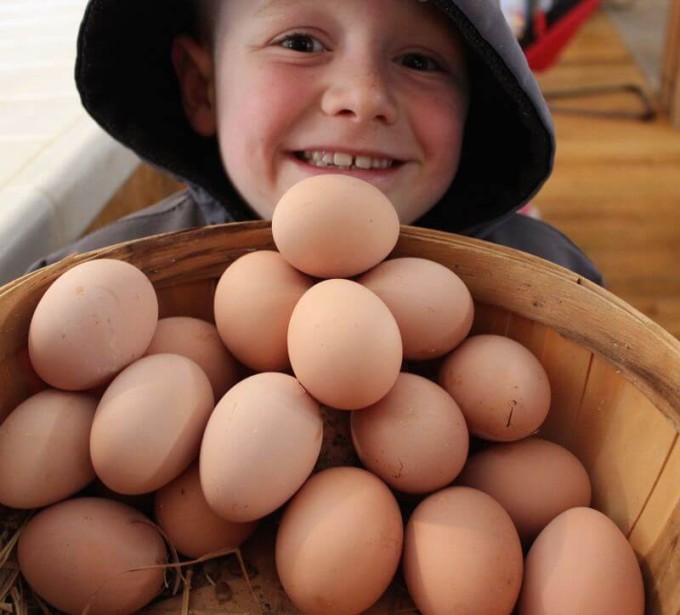
Predators
Snakes, skunks, rats, coyotes, owls, and hawks will keep a close eye on your chickens. Just the presence of predators will stress your hens out and cause a problem with egg production.
A great solution is to understand the basic needs of a chicken coop and have a well-designed chicken coop that keeps predators out and your hens safe. Make sure any vented or open space is covered with 1/2-inch wire mesh so predators cannot get into the coop.
If you have a predator problem, read this post to identify what predator killed your chicken.
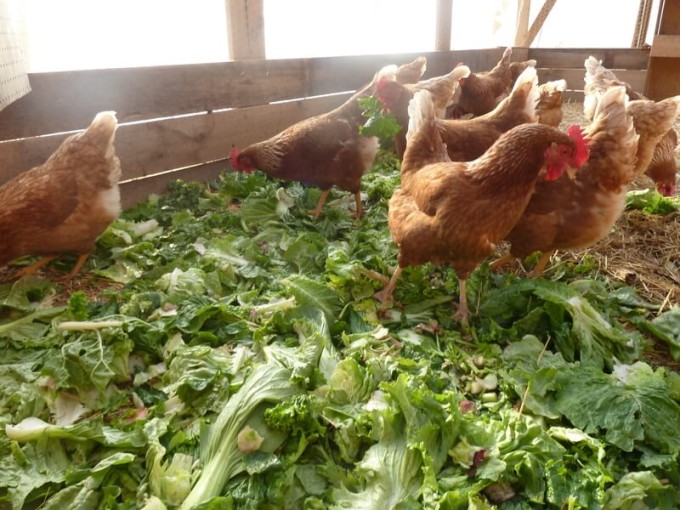
Egg-Bound Hen
Another reason hens stop laying eggs is that they could be egg-bound. Egg bound is when an egg is stuck in its oviduct. This could be deadly if not noticed immediately and can occur if you have an older or unhealthy hen.
One way to prevent egg binding is to ration their feed to avoid obesity. No more than 1/3 pound of food a day. Offer plenty of green feed leaves, herbs, grass, and calcium supplements.
Be sure to provide open space for your chickens to roam freely for exercise. Another factor that could cause egg binding is artificial light. It can affect your hen’s biological system.
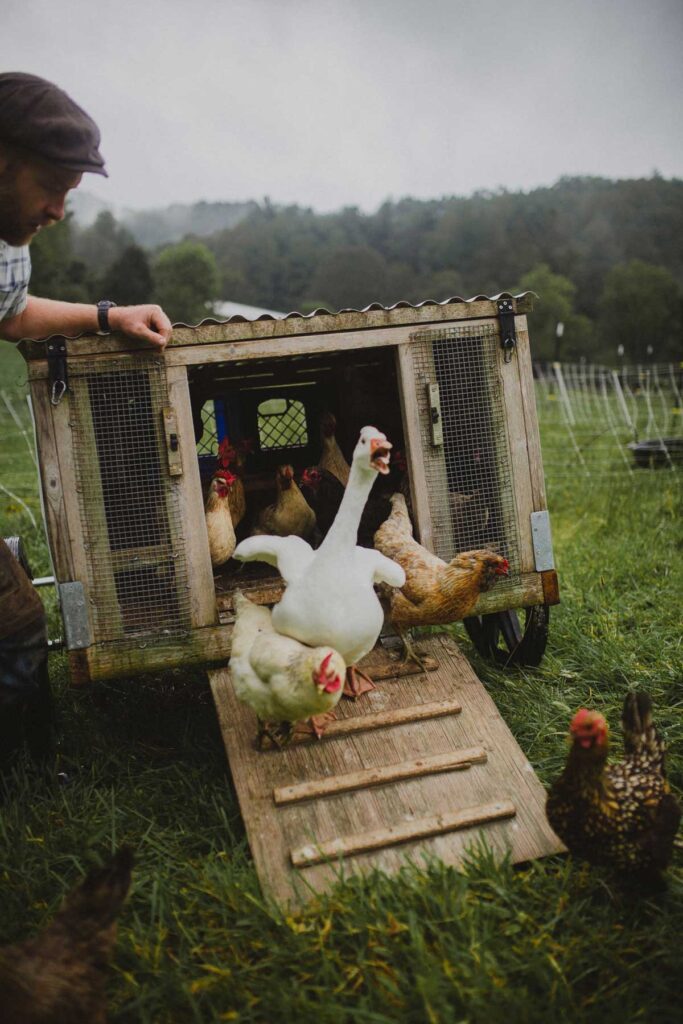
Overcrowding
An overcrowded chicken coop will cause stress on your chickens and cause the hens to stop laying eggs.
When possible, a single hen should have a minimum of 3 square feet inside and 10 square feet outside the coop.
Mixing the Flock
Assimilating a new chicken into your flock will disrupt the flock, which can cause stress. Also, taking a chicken out of the flock can cause disruption.
All we can do when adding or taking away chickens is be patient. It takes a little time for your chickens to establish a pecking order. We have found that moving new chickens in or taking chickens out is best done at night.
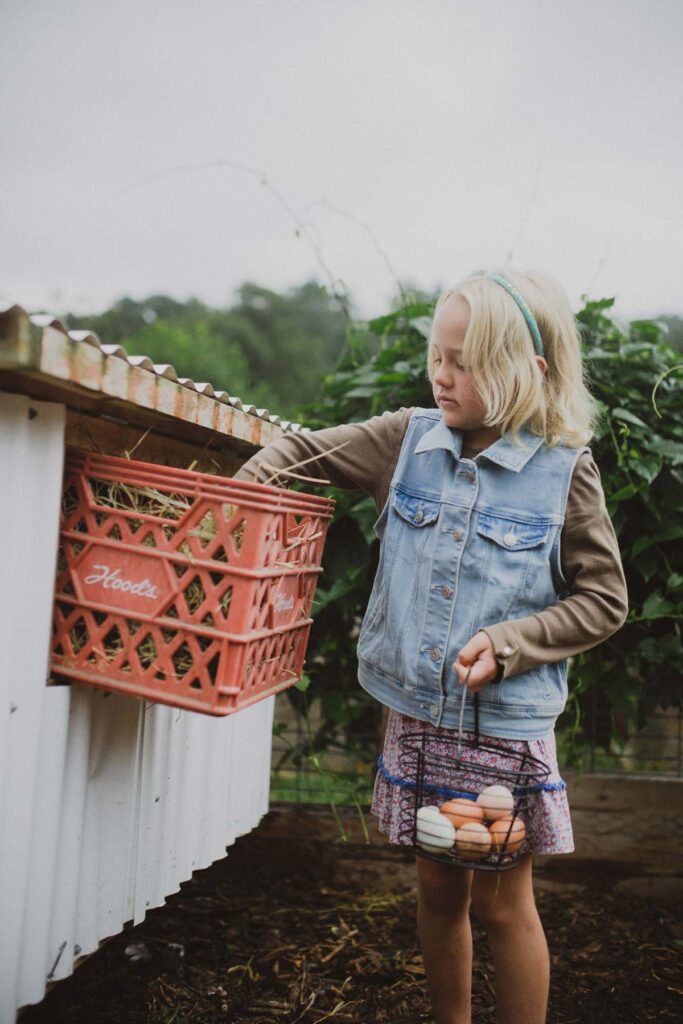
Change to a New Coop or Nesting Boxes
Chickens are all about their routine. Moving to a new coop or nesting boxes could cause the hens to stop laying eggs.
If you have to move them or change their routine, it is best to do it all at once and give it some time. Eventually, your hens will adjust.
Ill or Disease
One of the significant causes for chickens to stop laying eggs is illness or disease. The best way to treat illness and disease is to prevent it in the first place, but if your chickens get ill or diseased, remove them from the flock and isolate them.
Try giving your sick hens magic water. This mixture combines apple cider vinegar, honey, garlic, and water. Magic water will help boost the immune system. Adding a fermented feed to her diet is also a good idea. This mixture can be given to your flock as a preventative measure every so often.
We use magic water for raising our turkeys and raising our meat chickens. We have found it to help keep all of our birds healthy.
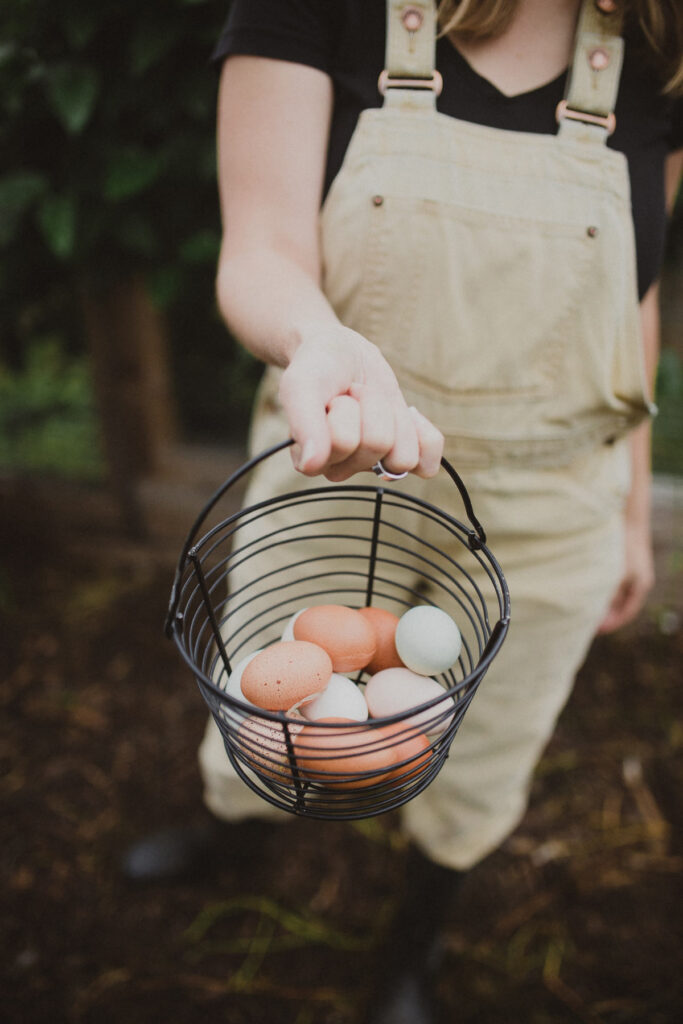
Extreme Heat and Cold
Hens stop laying eggs if they become too hot or too cold. Chickens lay eggs in temperatures between 50°F and 75°F.
On hot days it is always a good idea to provide plenty of shade so they can retreat from the sun. Also, give them a well-ventilated coop to sleep in at night. Always provide plenty of fresh, cool, clean water. You can even add ice cubes to their water to keep it cool.
Now on those extremely cold days, hens also stop laying, so it’s important to know how to keep chickens warm in the winter. It is a good idea to throw feed out on the ground in the evening before putting them in at night so they have something to digest, which keeps them warm.
Make sure the coop is draft free and that you put lots of bedding down in their nesting boxes to keep them warm.
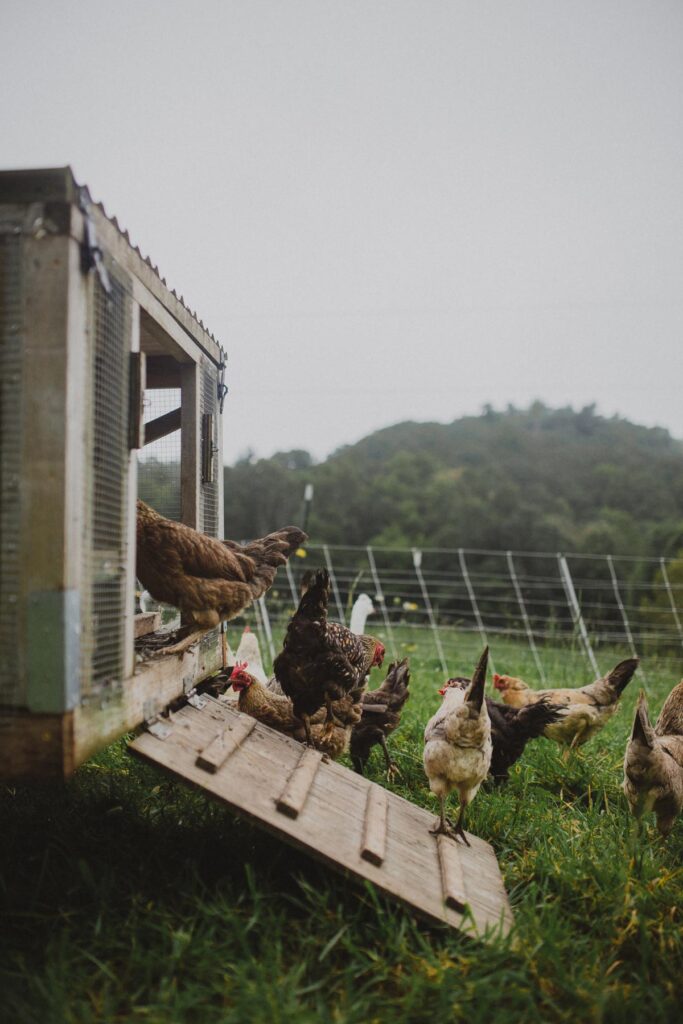
Lack of Ventilation
A coop that does not have excellent ventilation is not a suitable environment for your chickens. If a coop does not have ventilation, ammonia can build up in the coop, and the hens can get respiratory illness and be irritated, causing the hens to stop laying eggs.
A good rule of thumb is that 1/5 of the chicken coop should be open for ventilation to prevent ammonia build-up or stagnation in a coop. If your coop has this problem, open it up and cover the holes with wire mesh.
Another way to prevent ammonia build-up is to clean your coop regularly. Change the bedding and keep a deep bed of organic matter on the floor.
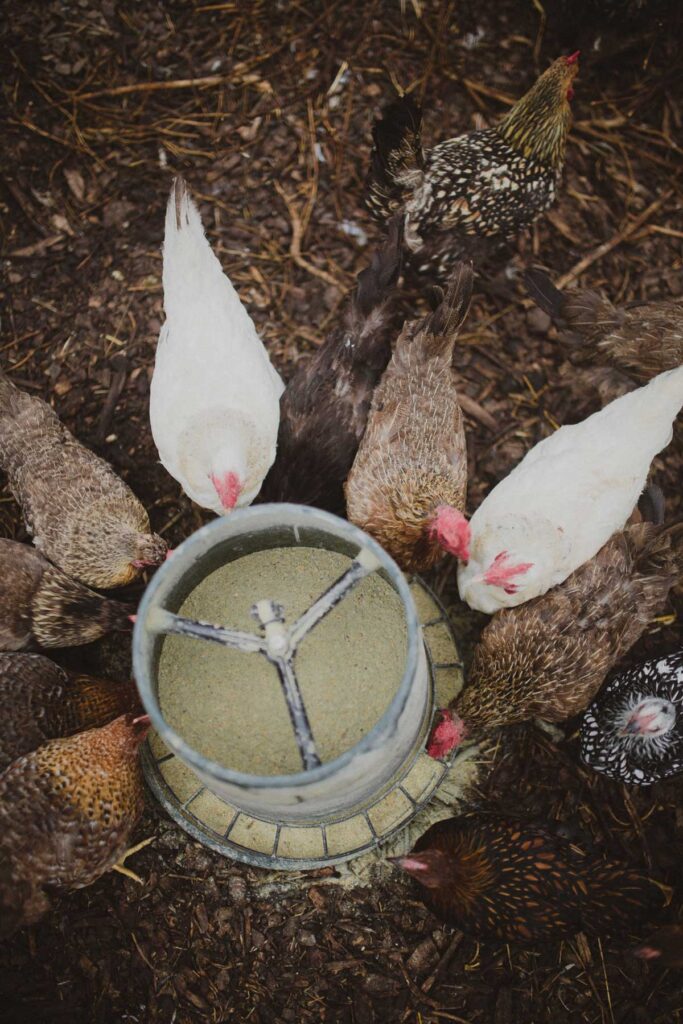
Poor or Bad Feed
There are many types of feed, but knowing what is best for your egg-laying chickens is essential. Some meals lack protein or calcium and can cause a decrease in egg production. Make sure your chickens get 1/3 pound of feed daily.
Read the labels of your chicken feed. Chickens need quality food to produce quality protein-rich eggs.
We use New Country Organic commercial feed. Sunrise Farm Feed is an excellent choice if you can’t afford organics. It’s GMO-free. We like to use feed that clearly identifies the ingredients. We also like to add plenty of greens, like herbs, to feed the chickens.
Remember that you can always feed your chickens food scraps from the house. They will enjoy every bit of your leftover scraps.
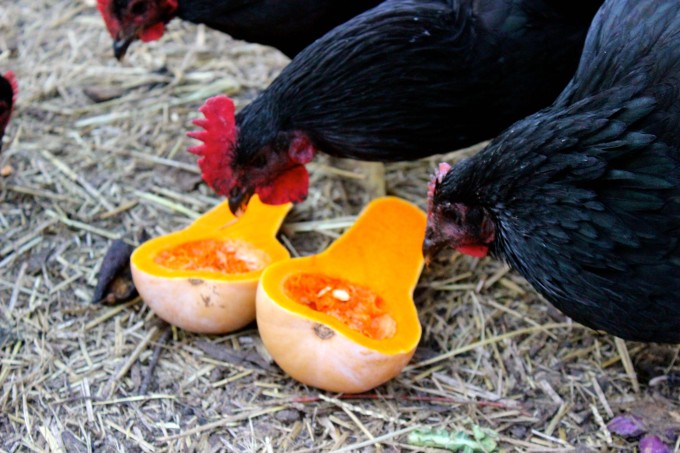
Overeating
Overfeeding your chickens will create unhealthy chickens. They can become obese and could become egg-bound.
A chicken only needs about 1/3 pound of food per day. It is a good idea to ration your hen feed throughout the day.
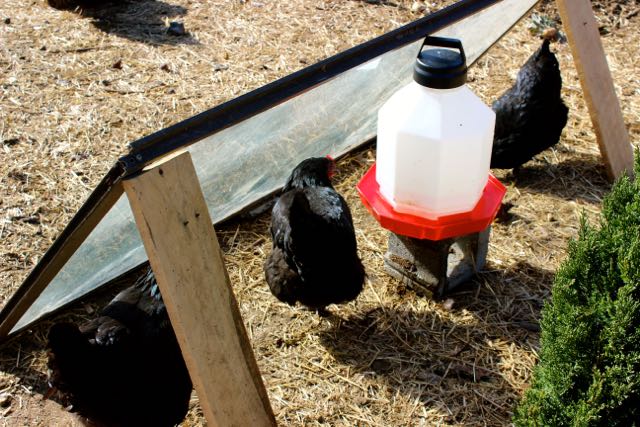
Lack of Water
A lack of water can severely affect egg production. If a chicken goes for 24 hours without water, it may not lay an egg for the next 24 days. Even a few hours without water can significantly affect egg production.
So make sure your chickens have a constant supply of fresh water, especially when you are away from the farm.
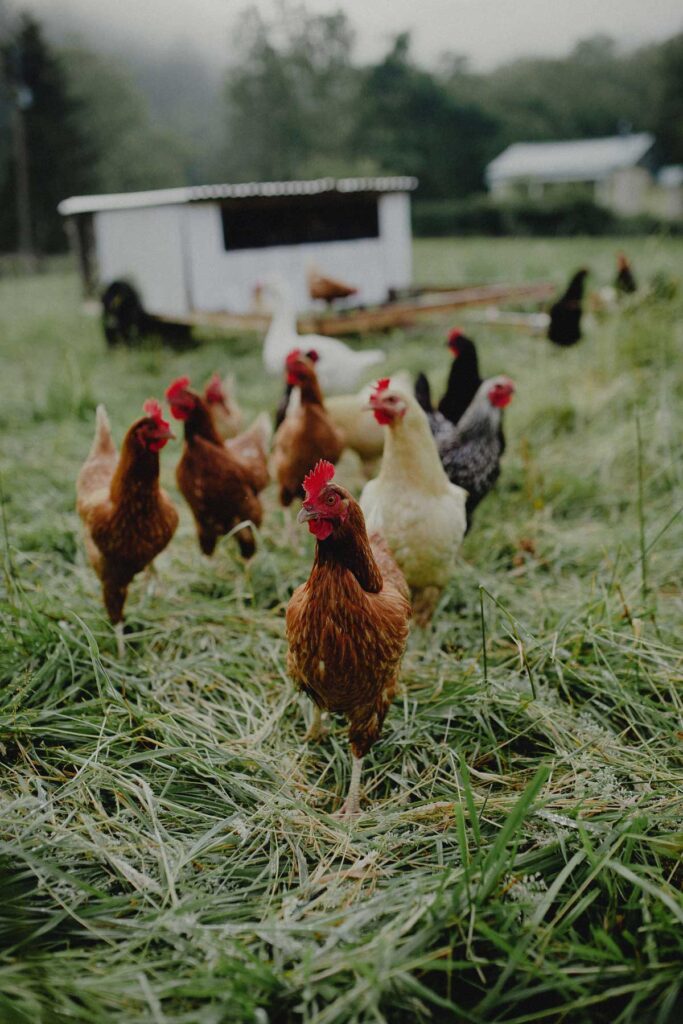
Free Range
If your chickens are free-range chickens, be prepared to go on an easter egg hunt. You may not find all of your eggs, so it might only appear that you have less egg production.
Age
Age is a significant factor in the egg production of a hen. A hen will start laying eggs at about 18 months old and will continue up to 8 years.
A healthy hen will have its best production of eggs from 2 to 3 years old. 2 to 3-year-old hens lay up to an egg a day, but the old hens will begin to slow down production, and eventually, the older hens stop laying eggs altogether.
Stress
Hens that are stressed will reduce egg laying or will stop altogether. Anything can stress your hens, from barking dogs to crazy loud children. As a chicken owner, be aware of your chicken’s surroundings and make your hen’s environment as stress-free as possible.
Now take this information and start investigating the possible reasons why your hens have stopped (or slowed down) on their laying.
For more information on raising chickens, check out the blog posts below.
